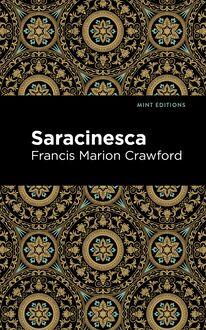-
 Univers
Univers
-
 Ebooks
Ebooks
-
 Livres audio
Livres audio
-
 Presse
Presse
-
 Podcasts
Podcasts
-
 BD
BD
-
 Documents
Documents
-
- Cours
- Révisions
- Ressources pédagogiques
- Sciences de l’éducation
- Manuels scolaires
- Langues
- Travaux de classe
- Annales de BEP
- Etudes supérieures
- Maternelle et primaire
- Fiches de lecture
- Orientation scolaire
- Méthodologie
- Corrigés de devoir
- Annales d’examens et concours
- Annales du bac
- Annales du brevet
- Rapports de stage
La lecture à portée de main

Vous pourrez modifier la taille du texte de cet ouvrage
Découvre YouScribe en t'inscrivant gratuitement
Je m'inscrisDécouvre YouScribe en t'inscrivant gratuitement
Je m'inscrisEn savoir plus
Vous pourrez modifier la taille du texte de cet ouvrage
En savoir plus

Description
When Mel Harrington, a lowly tailor with the manners of a nobleman, passes away, he leaves a considerable amount of debt. Though his three daughters all married into rich families, they cut contact with their father long before his death, due to his social status as a common tradesman. Valuing their status and the perks it privileges them with, the daughters want the same for their brother, Evan. To achieve this, they set him up with a beautiful and rich woman named Rose. Though they were paired together for financial reasons at first, Rose and Evan share an intimate bond. However, when Evan learns of his father’s debts, he cannot let them go unsettled. Worried for his mother and his father’s legacy, Evan moves to London to learn his father’s trade, despite the social repercussions. While Evan works hard to restore honor to his father’s name, his sisters try to convince him otherwise, concerned that he would lose Rose’s love. Struggling to manage his father’s legacy while protecting his social status, Evan must determine his own priority, whether it be love, power, or legacy.
Written by the Nobel Prize nominated author, George Meredith, Evan Harrington is comedic romance that exposes the shallow ideals of Victorian high society. Loosely autobiographical, Evan Harrington portrays vivid and complex characters while granting readers an intimate view on the hierarchy of Victorian society. With themes of class, marriage, family, and love, Evan Harrington is a sentimental narrative that captures the heart of its audience even over a century after its original publication.
This edition of Evan Harrington by George Meredith features an eye-catching new cover design and is presented in a font that is both modern and readable. With these accommodations, this edition is accessible and appealing to contemporary audiences, restoring this sentimental Victorian romance to modern standards while preserving the original mastery of George Meredith’s work.
Sujets
Informations
| Publié par | Mint Editions |
| Date de parution | 09 mars 2021 |
| Nombre de lectures | 0 |
| EAN13 | 9781513278919 |
| Langue | English |
| Poids de l'ouvrage | 2 Mo |
Informations légales : prix de location à la page 0,0500€. Cette information est donnée uniquement à titre indicatif conformément à la législation en vigueur.
Extrait
Evan Harrington
George Meredith
Evan Harrington was first published in 1861.
This edition published by Mint Editions 2021.
ISBN 9781513278452 | E-ISBN 9781513278919
Published by Mint Editions®
minteditionbooks.com
Publishing Director: Jennifer Newens
Design & Production: Rachel Lopez Metzger
Project Manager: Micaela Clark
Typesetting: Westchester Publishing Services
C ONTENTS B OOK I I. A BOVE B UTTONS II. T HE H ERITAGE OR THE S ON III. T HE D AUGHTERS OF THE S HEARS IV. O N B OARD THE J OCASTA V. T HE F AMILY AND THE F UNERAL VI. M Y G ENTLEMAN ON THE R OAD VII. M OTHER AND S ON B OOK II VIII. I NTRODUCES AN E CCENTRIC IX. T HE C OUNTESS IN L OW S OCIETY X. M Y G ENTLEMAN ON THE R OAD A GAIN XI. D OINGS AT AN I NN XII. I N WHICH A LE IS S HOWN TO H AVE O NE Q UALITY OF W INE XIII. T HE M ATCH OF F ALLOW F IELD A GAINST B ECKLEY B OOK III XIV. T HE C OUNTESS D ESCRIBES THE F IELD OF A CTION XV. A C APTURE XVI. L EADS TO A S MALL S KIRMISH B ETWEEN R OSE AND E VAN XVII. I N WHICH E VAN W RITES H IMSELF T AILOR XVIII. I N WHICH E VAN C ALLS H IMSELF G ENTLEMAN B OOK IV XIX. S ECOND D ESPATCH OF THE C OUNTESS XX. B REAK -N ECK L EAP XXI. T RIBULATIONS AND T ACTICS OF THE C OUNTESS XXII. I N WHICH THE D AUGHTERS OF THE G REAT M EL H AVE TO D IGEST H IM AT D INNER XXIII. T REATS OF A H ANDKERCHIEF XXIV. T HE C OUNTESS M AKES H ERSELF F ELT XXV. I N WHICH THE S TREAM F LOWS M UDDY AND C LEAR B OOK V XXVI. M RS . M EL M AKES A B ED FOR H ERSELF AND F AMILY XXVII. E XHIBITS R OSE ’ S G ENERALSHIP ; E VAN ’ S P ERFORMANCE ON THE S ECOND F IDDLE ; AND THE W RETCHEDNESS OF THE C OUNTESS XXVIII. T OM C OGGLESEY ’ S P ROPOSITION XXIX. P RELUDE TO AN E NGAGEMENT XXX. T HE B ATTLE OF THE B ULL -D OGS . P ART I XXXI. T HE B ATTLE OF THE B ULL -D OGS . P ART II B OOK VI XXXII. I N WHICH E VAN ’ S L IGHT B EGINS TO T WINKLE A GAIN XXXIII. T HE H ERO T AKES H IS R ANK IN THE O RCHESTRA XXXIV. A P AGAN S ACRIFICE XXXV. R OSE W OUNDED XXXVI. B EFORE B REAKFAST XXXVII. T HE R ETREAT FROM B ECKLEY XXXVIII. I N WHICH W E H AVE TO S EE IN THE D ARK B OOK VII XXXIX. I N THE D OMAIN OF T AILORDOM XL. I N WHICH THE C OUNTESS S TILL S CENTS G AME XLI. R EVEALS AN A BOMINABLE P LOT OF THE B ROTHERS C OGGLESBY XLII. J ULIANA XLIII. R OSE XLIV. C ONTAINS A W ARNING TO A LL C ONSPIRATORS XLV. I N WHICH THE S HOP B ECOMES THE C ENTRE OF A TTRACTION XLVI. A L OVERS ’ P ARTING XLVII. A Y EAR L ATER
BOOK I
I
A BOVE B UTTONS
Long after the hours when tradesmen are in the habit of commencing business, the shutters of a certain shop in the town of Lymport-on-the-Sea remained significantly closed, and it became known that death had taken Mr. Melchisedec Harrington, and struck one off the list of living tailors. The demise of a respectable member of this class does not ordinarily create a profound sensation. He dies, and his equals debate who is to be his successor: while the rest of them who have come in contact with him, very probably hear nothing of his great launch and final adieu till the winding up of cash-accounts; on which occasions we may augur that he is not often blessed by one or other of the two great parties who subdivide this universe. In the case of Mr. Melchisedec it was otherwise. This had been a grand man, despite his calling, and in the teeth of opprobrious epithets against his craft. To be both generally blamed, and generally liked, evinces a peculiar construction of mortal. Mr. Melchisedec, whom people in private called the great Mel, had been at once the sad dog of Lymport, and the pride of the town. He was a tailor, and he kept horses; he was a tailor, and he had gallant adventures; he was a tailor, and he shook hands with his customers. Finally, he was a tradesman, and he never was known to have sent in a bill. Such a personage comes but once in a generation, and, when he goes, men miss the man as well as their money.
That he was dead, there could be no doubt. Kilne, the publican opposite, had seen Sally, one of the domestic servants, come out of the house in the early morning and rush up the street to the doctor’s, tossing her hands; and she, not disinclined to dilute her grief, had, on her return, related that her master was then at his last gasp, and had refused, in so many words, to swallow the doctor.
“‘I won’t swallow the doctor!’ he says, ‘I won’t swallow the doctor!’” Sally moaned. “‘I never touched him,’ he says, ‘and I never will.’”
Kilne angrily declared, that in his opinion, a man who rejected medicine in extremity, ought to have it forced down his throat: and considering that the invalid was pretty deeply in Kilne’s debt, it naturally assumed the form of a dishonest act on his part; but Sally scornfully dared any one to lay hand on her master, even for his own good. “For,” said she, “he’s got his eyes awake, though he do lie so helpless. He marks ye!”
“Ah! ah!” Kilne sniffed the air. Sally then rushed back to her duties.
“Now, there’s a man!” Kilne stuck his hands in his pockets and began his meditation: which, however, was cut short by the approach of his neighbour Barnes, the butcher, to whom he confided what he had heard, and who exclaimed professionally, “Obstinate as a pig!” As they stood together they beheld Sally, a figure of telegraph, at one of the windows, implying that all was just over.
“Amen!” said Barnes, as to a matter-of-fact affair.
Some minutes after, the two were joined by Grossby, the confectioner, who listened to the news, and observed:
“Just like him! I’d have sworn he’d never take doctor’s stuff”; and, nodding at Kilne, “liked his medicine best, eh?”
“Had a-hem!—good lot of it,” muttered Kilne, with a suddenly serious brow.
“How does he stand on your books?” asked Barnes.
Kilne shouldered round, crying: “Who the deuce is to know?”
“I don’t,” Grossby sighed. “In he comes with his ‘Good morning, Grossby, fine day for the hunt, Grossby,’ and a ten-pound note. ‘Have the kindness to put that down in my favour, Grossby.’ And just as I am going to say, ‘Look here,—this won’t do,’ he has me by the collar, and there’s one of the regiments going to give a supper party, which he’s to order; or the Admiral’s wife wants the receipt for that pie; or in comes my wife, and there’s no talking of business then, though she may have been bothering about his account all the night beforehand. Something or other! and so we run on.”
“What I want to know,” said Barnes, the butcher, “is where he got his tenners from?”
Kilne shook a sagacious head: “No knowing!”
“I suppose we shall get something out of the fire?” Barnes suggested.
“That depends!” answered the emphatic Kilne.
“But, you know, if the widow carries on the business,” said Grossby, “there’s no reason why we shouldn’t get it all, eh?”
“There ain’t two that can make clothes for nothing, and make a profit out of it,” said Kilne.
“That young chap in Portugal,” added Barnes, “he won’t take to tailoring when he comes home. D’ ye think he will?”
Kilne muttered: “Can’t say!” and Grossby, a kindly creature in his way, albeit a creditor, reverting to the first subject of their discourse, exclaimed, “But what a one he was!—eh?”
“Fine!—to look on,” Kilne assented.
“Well, he was like a Marquis,” said Barnes.
Here the three regarded each other, and laughed, though not loudly. They instantly checked that unseemliness, and Kilne, as one who rises from the depths of a calculation with the sum in his head, spoke quite in a different voice:
“Well, what do you say, gentlemen? shall we adjourn? No use standing here.”
By the invitation to adjourn, it was well understood by the committee Kilne addressed, that they were invited to pass his threshold, and partake of a morning draught. Barnes, the butcher, had no objection whatever, and if Grossby, a man of milder make, entertained any, the occasion and common interests to be discussed, advised him to waive them. In single file these mourners entered the publican’s house, where Kilne, after summoning them from behind the bar, on the important question, what it should be? and receiving, first, perfect acquiescence in his views as to what it should be, and then feeble suggestions of the drink best befitting that early hour and the speaker’s particular constitution, poured out a toothful to each, and one to himself.
“Here’s to him, poor fellow!” said Kilne; and was deliberately echoed twice.
“Now, it wasn’t that,” Kilne pursued, pointing to the bottle in the midst of a smacking of lips, “that wasn’t what got him into difficulties. It was expensive luckshries. It was being above his condition. Horses! What’s a tradesman got to do with horses? Unless he’s retired! Then he’s a gentleman, and can do as he likes. It’s no use trying to be a gentleman if you can’t pay for it. It always ends bad. Why, there was he, consorting with gentlefolks—gay as a lark! Who has to pay for it?”
Kilne’s fellow-victims maintained a rather doleful tributary silence.
“I’m not saying anything against him now,” the publican further observed. “It’s too late. And there! I’m sorry he’s gone, for one. He was as kind a hearted a man as ever breathed. And there! perhaps it was just as much my fault; I couldn’t say ‘No’ to him,—dash me, if I could!”
Lymport was a prosperous town, and in prosperity the much-despised British tradesman is not a harsh, he is really a well-disposed, easy soul, and requires but management, manner, occasional instalments—just to freshen the account—and a surety that he who debits is on the spot, to be a right royal king of credit. Only the account must never drivel. “Stare aut crescere” appears to be his feeling on that point, and the departed Mr. Melchisedec undoubtedly understood him there; for the running on of the account looked deplorable and extraordinary now that Mr. Melchisedec was no longer in a position to run on with it, and it was precisely his doing so which had prevented it from being brought to a summary close long before. Both Barnes, the butcher; and Grossby,
Attention
En entrant sur cette page, vous certifiez :
- 1. avoir atteint l'âge légal de majorité de votre pays de résidence.
- 2. avoir pris connaissance du caractère érotique de ce document.
- 3. vous engager à ne pas diffuser le contenu de ce document.
- 4. consulter ce document à titre purement personnel en n'impliquant aucune société ou organisme d'État.
- 5. vous engager à mettre en oeuvre tous les moyens existants à ce jour pour empêcher n'importe quel mineur d'accéder à ce document.
- 6. déclarer n'être choqué(e) par aucun type de sexualité.
YouScribe ne pourra pas être tenu responsable en cas de non-respect des points précédemment énumérés. Bonne lecture !
-
 Univers
Univers
-
 Ebooks
Ebooks
-
 Livres audio
Livres audio
-
 Presse
Presse
-
 Podcasts
Podcasts
-
 BD
BD
-
 Documents
Documents
-
Jeunesse
-
Littérature
-
Ressources professionnelles
-
Santé et bien-être
-
Savoirs
-
Education
-
Loisirs et hobbies
-
Art, musique et cinéma
-
Actualité et débat de société
-
Jeunesse
-
Littérature
-
Ressources professionnelles
-
Santé et bien-être
-
Savoirs
-
Education
-
Loisirs et hobbies
-
Art, musique et cinéma
-
Actualité et débat de société
-
Actualités
-
Lifestyle
-
Presse jeunesse
-
Presse professionnelle
-
Pratique
-
Presse sportive
-
Presse internationale
-
Culture & Médias
-
Action et Aventures
-
Science-fiction et Fantasy
-
Société
-
Jeunesse
-
Littérature
-
Ressources professionnelles
-
Santé et bien-être
-
Savoirs
-
Education
-
Loisirs et hobbies
-
Art, musique et cinéma
-
Actualité et débat de société
- Cours
- Révisions
- Ressources pédagogiques
- Sciences de l’éducation
- Manuels scolaires
- Langues
- Travaux de classe
- Annales de BEP
- Etudes supérieures
- Maternelle et primaire
- Fiches de lecture
- Orientation scolaire
- Méthodologie
- Corrigés de devoir
- Annales d’examens et concours
- Annales du bac
- Annales du brevet
- Rapports de stage




















